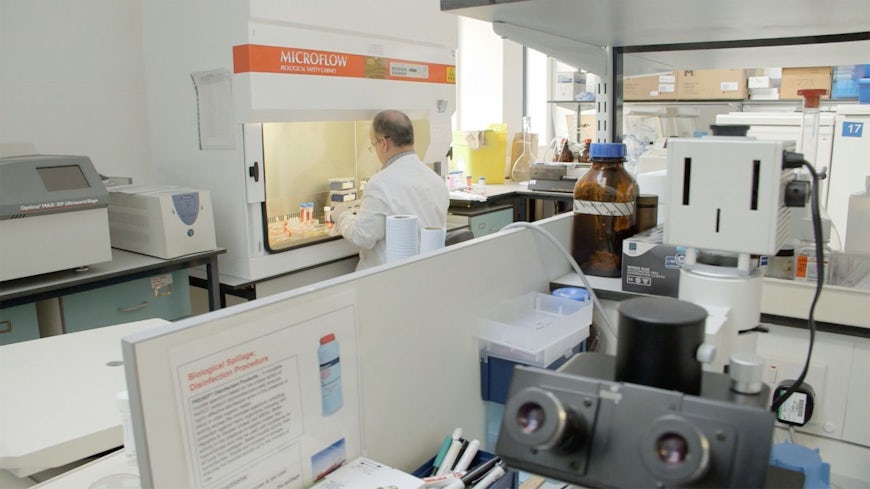Treating locally advanced prostate cancer
Our researchers reveal the best technique for treating locally advanced prostate cancer.

Locally advanced prostate cancer affects 20,000 men per year in the US, and 4,000 men per year in the UK. Before embarking on this new research, there was no consensus on the standard of care or the best way to treat the condition.
This study is practice changing as it highlights the importance of radiation in the treatment of high-risk prostate cancer patients and clearly demonstrates its benefits. It shows that the standard treatment for these patients should now be hormone therapy plus radiation.
Finding the best treatment
Previous studies in patients compared radiotherapy alone, and hormone therapy plus radiotherapy. However, while these trials established a role for hormone therapy, they failed to establish the precise contribution of radiotherapy, and the result was uncertainty about the role of radiotherapy in such patients.
An international randomised clinical trial led by our researchers sought to end the confusion by identifying whether combining hormone therapy plus radiotherapy improves the outcome for sufferers. The trial showed that treating locally advanced disease with a combination of radiotherapy and hormone therapy halved the risks of dying of prostate cancer.
Life saving research
Our research has proven that combining radiotherapy and hormone therapy halves the risks of dying of prostate cancer.
Changing treatment worldwide
After the first UK presentation of the interim analysis, at the UK National Cancer Research Institute conference in 2010, Professor Sir Richard Peto (Professor of Medical Statistics and Epidemiology, University of Oxford ) stated publicly that he expected to see the population mortality rates from prostate cancer to fall following the implementation of this study.
It is now a standard of care, enshrined in European and North American guidelines, that all such patients who are fit enough to receive it, should now be offered combined modality radiotherapy plus hormone therapy.

